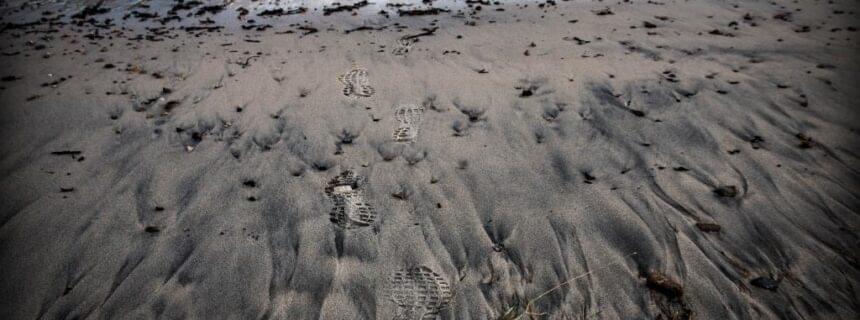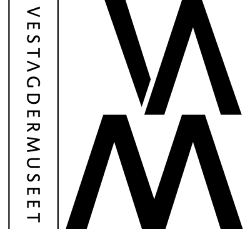Man, 29, asylum seeker: «I started school when I was about 10, but I could not attend a regular school because I had to work during the day to earn some money to give to my mother, to buy food and clothes, pay the house rent and other expenses.»
I was about five years old when my parents decided to flee to Iran because of the constant civil war and the chaotic situation in my country Afghanistan. I went to school for almost 10 years, worked in construction and then as a part time teacher in Iran. I decided to return to Afghanistan in 2011.
My work as an informal teacher was at an independent Afghan refugee school. It was run by Afghan refugees and provided education for Afghan children who were unable to attend Iranian state schools. Many Afghan refugee children in Iran were deprived of education because they had arrived illegally and did not have valid residential permits. Therefore, Afghan refugees decided to establish their own schools so their children would not grow up illiterate.
I was about 5 years old when my family moved from Afghanistan, so I have very few memories from my life there. I only remember our village, my father’s horse, and the river that ran through the village. I know that my father was a farmer and owned a great deal of farmland and livestock. He was respected among the villagers and never, as far as I know, wished to leave his country. He decided to leave his country only in order to rescue his children and wife when war and violence reached the village. After living a few years in Iran, my father decided to go back to his village alone, in order to assess the situation; if it had improved he would take us back to Afghanistan. Unfortunately, he died in the village, from a heart attack.
I remember that I was unable to go to school for the first few years in Iran, because we were not legally accepted as refugees at the beginning, and it took a few years for us to receive our temporary residence permits. I started school when I was about 10, but I could not attend a regular school because I had to work during the day to earn some money to give to my mother, to buy food and clothes, pay the house rent and other expenses. I was very determined to continue my education, and I would eventually become a teacher after returning to Afghanistan. It was also my parents’ dream to go back one day. So I attended evening school and pursued my education up to the 11th grade.
Living as an Afghan refugee in Iran was not easy. I experienced verbal harassment on a daily basis.
Throughout my 20 years in Iran, I met systematic and continuous discrimination and injustice, and had no legal right to complain about it. The Iranian government could deport me back to Afghanistan whenever they wanted to, and I would have no legal ground to claim that I had lived in Iran my whole life. But I was unable to buy a SIM card in my own name, was not allowed to have driving license, nor the legal right to purchase property in Iran. I was not permitted to run my own private business or shop. I got no respect, and did neither have dignity nor any human rights in Iran.
My father was old and sick and unable to work. His sons, including me, supported him while he was with us in Iran, but he could not endure his situation and decided to return to his homeland. He went back to Afghanistan with an eye to rebuilding his house and regain his property, and then to invite us back to the country. Unfortunately, he died from a heart attack in his village and was buried there.
As a ten-year-old I started my first job in shoe production, making plastic shoes and sandals, working more than 10 hours a day for a tiny amount of money.
I have had different kinds of jobs in Iran, but all of them were tough, with low pay and no insurance or paid leave. As a ten-year-old I started my first job in shoe production, making plastic shoes and sandals, working more than 10 hours a day for a tiny amount of money. The owner was very harsh and sometimes beat us, and as Afghan workers we did not dare stand up to him or complain to the government about his bad behaviour. I also worked with my older brother in construction, as a simple worker, in open areas in summer time; the job was very tough, in temperatures up to 45 degrees Celsius in the summer. The only job I liked was teaching refugee children in independent Afghan schools, but that job was lost when the Iranian government shut them down for good.
I went to school for about 11 years. I was determined to continue my education, and to continue at university level after finishing school, but I had to interrupt my education because of economic difficulties. At the beginning, school was free in Iran for those Afghans who had residence permits, but after a few years they changed the rules and imposed school fees for refugee students. The school fees had to be paid on a yearly basis, all at once at the beginning of the school year, which meant that many Afghan families could not afford to pay and stopped sending their children to school. This happened to me too; I couldn’t pay the high fees, and I had lost my motivation for higher education after realizing it would not be possible for me to enter an Iranian university, which would also be too expensive for a refugee. When they closed the Afghan refugee schools in Iran, I returned to Afghanistan.
I did not earn much money as a teacher in Kabul. My motivation for teaching those poor female students was not money, but to help them learn to read and write, and to understand their rights and responsibilities towards their families, children, and societies. Unfortunately, the majority of women in Afghanistan are illiterate or poorly educated. There are many widows and orphans in Afghanistan who have lost their breadwinners during three decades of war. I was working with a very vulnerable group of women who received no income or support, and I was not expecting them to pay me for teaching them reading and writing.
I stayed in Kabul for about one year. I engaged with human rights activists to promote human rights and women’s rights, in particular in Afghanistan. I took part in demonstrations against the violation of women’s rights and continuous abuses by the government as well as by the Taliban. I participated in writing slogans against the Taliban in Kabul; this got me arrested by the police and kept in police custody for one night. I was forced to leave Afghanistan again after receiving threatening calls because of my involvement in human rights activities, and because my brother worked with foreign forces. I went back to Iran, but this time without a legal permit to stay, so I was in a very bad situation and could be arrested and deported at any moment. In order to avoid police investigation, I stayed in the basement where I was working to avoid any unnecessary movement in town or places where I could be stopped by the police.
I was forced to leave Afghanistan again after receiving threatening calls because of my involvement in human rights activities, and because my brother worked with foreign forces.
At the time, the Iranian government was encouraging illegal Afghan refugees to sign up to fight rebel groups in Syria, in exchange for high salaries and an Iranian residence permit. An Afghan friend offered me to join him on the Syrian front, to defend the holy Shia shrine Hazrat e Zainab. I rejected his offer and told him I would rather be deported back to Afghanistan and get killed by the Taliban than engage in a fight that had nothing to do with me and to my values. He went to Syria despite my strong disagreement with his reasons for going there. He lost his life in Syria’s war, and his dead body was brought back to be buried in Iran. I participated in his funeral ceremony and could not keep quiet; I argued with a Mullah who praised his participation in the so-called Jihad in Syria. I lost my temper and questioned his justification for sending young Afghan people to Syria to fight against Sunnis. A few days later, I was arrested in my house and deported to Afghanistan.
This time I had no place to stay in Kabul because my older brother and his family had already left Afghanistan. My oldest brother moved from Kabul to our village in the Ghazni province after being forced, under threat, to cooperate in finding my brother, who worked as an interpreter for the foreign military forces in Afghanistan. I had no choice but to go to my brother in Ghazni, which is controlled by the Taliban during the night and by the government during the day.
My brother and his family welcomed me to the village. But there was nothing to do there. Farming was not good at all and much of the land had remained uncultivated after severe droughts. I decided to establish an education course in the village and teach English to the children who were interested in learning the English language. Most villagers approved of my language course. But a few influential individuals were against it, arguing that our children only needed to learn the Quran and Islamic religious materials. They accused me of spreading western values to the children and of corrupting them. Even so, the majority of the villagers kept encouraging me to continue my teaching.
So I was determined to continue my job as an English teacher, despite the challenges and resistance from religious and conservative people. But then one of my students disclosed that he was in a relationship with a girl who happened to be the daughter of a local commander. She became pregnant, so their affair was not possible to keep secret any longer. I had no choice but to help them escape from the village, and to do so, myself and my brother had to escape too. They started their relationship in my language course, which means that I was indirectly responsible for their crime in the eyes of the villagers. I am proud to have helped those two young lovers escape from an imminent threat, but doing so came at a great cost to me: I had to escape from my country again.
I would like to say to the Norwegian people, especially to the school pupils and university students that you are really lucky to have born and raised in this part of the world. You must embrace your country and your values and democratic governmental system.
You are privileged to be able to pursue your dreams, and if you work hard you have a good possibility to achieve the jobs and goals you wish for, while people in my country struggle to escape bombardment and violence. Many children are not able to go to school due to a lack of security or access to educational facilities. People are unable to give their children enough food, because they lack any kind of income or economic support. Many students must quit their education because their families cannot help them pay university fees.
Would you like to read more interviews? www.vestagdermuseet.no/fattigdom

